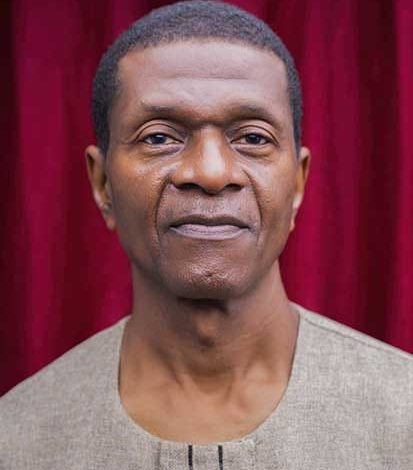
By IfeanyiChukwu Afuba
Whether said openly or in hushes, there’s a perception out there that the country’s Civil Services are underperforming. This poor rating of the federal and state bureaucracies is shared strongly by leaders of governments across the country. It would account, in part, for the unwillingness of political leaders to accede to meaningful wage increase for workers. Dating back to the still – born Third Republic, we have seen some State Governors proposing reduction in number of working days as alternative to wage increase. But this recommendation would only be running away from a problem.
Since the focus is on greater performance, we should be concerned with feasible approaches for “recreating” the Civil Service. Although several civil service reforms have been attempted in the past, it is to be noted that the challenges facing the administrative organ of Government in the country are neither static nor permanent. They continue to vary in time, shape and content being themselves impacted by the forces of sociology and development. Furthermore, past civil service reforms tended to prioritize bolstering of the leadership cadres rather than sustainable development of the entire workforce.
The Civil Service Reforms of 1988, remarkable for it’s emphasis on career professionalism, weighed in favour of potential heads of MDAs. Rising to the apex is invariably a pyramid trip, with the number of successful candidates narrowing in the progression. While the concept of Director – General created room for non administrative officers to attain the equivalent of Permanent Secretary, this did not stir noticeable ‘interest’ in the middle and lower rungs. The new headship position was not an attraction nor incentive for hard work because the prospect of attainment was not in view.
Anambra State Governor, Chukwuma Soludo recently tried to extend the stakes factor in the appointment of 18 new permanent secretaries. This harvest of “accounting” officers for Ministries, Departments & Agencies was unique in it’s extent of competitiveness. The recruitment process broke with tradition in two significant ways. Pre-qualification was thrown open to all in senior management cadre. Secondly, applications were also invited from outside the Civil Service for candidates with cognate experience for the job. Doubtless, these provided a wider, richer resource pool for talents. The experiment with private sector engagement however, did not yield the intended input. The vacancies were probably not sufficiently publicized or the age factor vis a vis conditions of service was seen as a disadvantage. Civil Servants retire at 60 with pension right proportionate to number of service years. Consequently, a folk assuming Permanent Secretaryship from outside the system at say, age 55 will leave at retirement age without being qualified for pension and gratuity.
In the context of inclusivity, there is need to give the middle and lower rungs of the Service not just a sense of belonging but indeed, opportunity of stakeholdership. Thus, at the various levels of the system, conditions can be created for recognition and reward of sterling performance to serve as general motivation.
A major problem of the Civil Service rarely captured by past reform studies is the negative attitude of many officers to democratic governments. This is a case of widespread resentment arising from the “corruption” of military rule. Till date, many civil servants rate military regimes as generally performing better than democracies. But this preference for military dictatorship actually has to do with the sense of marginalisation associated with democratic dispensations.
It is to be remembered that military rule was structurally and politically dependent on the Civil Service for it’s operation.This administrative necessity opened handsome opportunities at power play for civil servants. The hitherto anonymous bureaucrats became Secretary to Federal/State Governments; Resident; Senior Divisional Officer; Local Government Chairman; Sole Administrator of Parastatals and Agencies, Heads of Commissions and so on. Permanent Secretaries transited to super permanent secretaries, with sufficient clout to instigate renunciation of the Aburi Accord. As advisers to military regimes, top bureaucrats emerged as both policy makers and policy executors. The benefits of this empowerment trickled down to the lowest step of the officer corp with severe consequences for ethics and accountability.
Although the generations that experienced military rule would phase out from service in the next ten years, the heritage of the military era would continue to impact the character of the Civil Service for some time. The gaps between “with immediate effect decrees” and the rounds of participatory democracy are too wide to be underplayed. Similarly, the conditioning for illicit enrichment arising from over – exposure of ideally anonymous bureaucrats cannot be erased overnight.
Unfortunately, the irresponsibility and looting of the Nigerian political class has fueled nostalgia for military rule among public servants. With the winner – takes – all – orientation of Nigerian politics, many an elected administration have descended on government institutions as conquered territories, seeking to subject them to partisan ends. In the event, civil servants’ resentment of democratic government fosters.
Ordinarily, the Nigerian public service is over bloated. The Stephen Orosanye Report of 2012 established the existence of 541 federal Parastatals, Commissions and Agencies. It went ahead to recommend reduction of statutory agencies from 263 to 161, scrapping of 38 agencies and merging of 52. For Ehi Ibrahim, “trimming the civil service to a manageable size” must be undertaken before the system can achieve efficiency. When we add to above scenario, the hundreds of political offices created by elected governments, the inherent administrative challenges become clearer. Not only are some of the offices multiplications of existing ones or conflicting with statutory regulations, the bossy ways of the political appointees make relations with the bureaucracy difficult.
The first task here would be to summon the political will to cut cost of governance to the essentials. Secondly, the gulf between politicians and non politicians can be bridged through blending of political and career offices at some levels. Closer and cooperative interaction of the two sides are necessary for smooth functioning of government machinery. Joint undertakings will also enhance civil
servants’ appreciation of the Government’s manifesto, thus, increasing their capacity for service delivery.
As a product of society, our Civil Services are contending with the quality of our developmental efforts. The manpower of our administrative institutions are largely products of underfunded universities caught in a vicious circle of prolonged shutdowns, commercialized academic assessment and rushed school programmes. Add to that the toll youth addiction to social media is taking on education and the crisis stares in the face. _Punch_ news story of July 18, 2024, titled “6500 Federal Workers Fail Promotion Exam” leaves nothing else to the imagination. And this is not the kind of deficiency Administrative Staff College of Nigeria can remedy. The situation demands a continuing education programme. Staff should not be assessed only at (four yearly) promotion intervals. Governments must ensure that every Ministry has a well – stocked library. And as Stephen Olugbemi canvassed in “The Nigerian Civil Service and National Development,” the use of modern management practices and policy monitoring mechanisms will make a difference.
Afuba is Director, Public Administration Circle, Awka.



